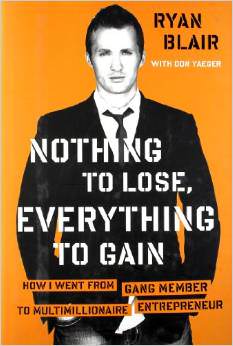10 Deadly Startup Sins
It’s a well-accepted axiom in the investor community that entrepreneurs learn more from their failures than their successes. Thus a well-explained startup failure often can actually improve your odds of funding in the next go-round. Yet, there is no doubt that the best strategy is to learn from someone else’s mistakes, so you can enjoy the millions that someone else lost in learning.
Certainly, there are innumerable possible mistakes to be made, but there is a thread of common ones that I see across the range of all startups. Ryan Blair, a serial entrepreneur who admits to his share of million dollar mistakes, as well as some multi-million dollar successes, sums these up nicely in his current bestseller “Nothing to Lose, Everything to Gain:”
- Don’t make wildly optimistic sales forecasts. Test and adjust your projections, based on experienced advisor input and industry norms, rather than the Google high exception. Excel spreadsheets can easily project dramatic growth, with no connection to reality.
- Don’t hire people who like your ideas all the time. Flattery feels good, but it doesn’t pay the bills. Look for the thoughtful challenge to your ideas, and practice active listening, when you are selling your vision. High three-digit intelligence has value.
- Don’t focus too much on the competition. It’s always more productive to focus on making your offering successful, rather than killing your competitors. Doing things like dismantling their leadership team, or highlighting their shortcomings is lose-lose.
- Don’t waste time caring what others think. No matter how hard you try, you won’t make everyone happy. Don’t be afraid to follow your vision, learn from your mistakes, and pivot the business, just because someone will see the change as a disappointment.
- Don’t mix business with pleasure. This is especially true of relationships. Do not fraternize with your employees, and choose your partners wisely. Thou shall not “do your business” where you do business.
- Be quick to fire and slow to hire. Pull the trigger fast when a new hire isn’t working, but don’t forget to be human and follow all the steps. On the other side, hiring after one interview is like hopping a red-eye to Vegas to get married after one date.
- Don’t put your company before your people. A company is an entity that can be pivoted at will. Your team of people has a collective passion and intelligence with a real worth that’s hard to manipulate. Make the company fit the people, rather than vice versa.
- Don’t under-forecast cash needs. When you have people and their families depending on you for their paychecks, and you are out of money, that’s another lose-lose situation. Even if you can find someone willing to help, it’s a very, very expensive proposition.
- Don’t try to do too much all at once. You hear about all the parallel entrepreneurs, like Steve Jobs running Apple and Pixar at the same time. Make sure you have the aptitude to run one business well, with one product line, before you start a couple more.
- Never write something you wouldn’t want to come back to you. Every one of us has sent a sensitive email to the wrong party or had it misinterpreted by the recipient. Save the hard and easily misinterpreted messages for calm, face-to-face discussions.
There are more, but I think you get the idea. Of course, the biggest mistake is failing to learn from the mistakes of others, or even from your mistakes. You can only learn from your mistake after you admit you’ve made it. Wise people admit their mistakes easily and move the focus away from blame management and towards learning. Wise people can become great entrepreneurs. Where are you along this spectrum?

